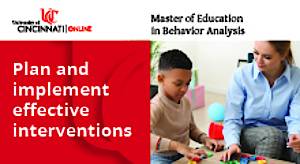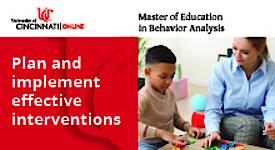Week in Review - September 18, 2020
NASET
WEEK IN REVIEW
National Association of Special Education Teachers
September 18, 2020 Vol 16 Issue #37
Dear NASET Members and Guests,
Welcome to NASET's WEEK in REVIEW. Here, we provide you with the latest publications fromNASET to read and or download, as well as some of the most interesting articles that have happened this week in the field of special education. We hope you enjoy this publication. Feel free to send us articles for this publication or let us know your thoughts about the WEEK in REVIEW at news@naset.org. Have a great weekend.
Sincerely,
WHATS NEW AT NASET
NASET's Parent Teacher Conference Handout
What’s a developmental delay?
The term “developmental delay” is an important one in early intervention. Broadly speaking, it means that a child is delayed in some area of development. There are five areas in which development may be affected:
- Cognitive development
- Physical development, including vision and hearing
- Communication development
- Social or emotional development
- Adaptive development
COVID-19 Takes Toll on People with Disabilities
Fifty-four people served by the Florida Agency for Persons with Disabilities have died of COVID-19, according to a report Tuesday. In all, 1,196 Agency for Persons with Disabilities beneficiaries have tested positive for the virus, with 803 having recovered, said Melanie Etters, an agency spokeswoman. The agency report also shows that 353 workers at group homes or private institutions that care for people with intellectual and developmental disabilities have tested positive for the virus, and six of those workers have died. Additionally, 49 employees of the Agency for Persons with Disabilities have tested positive for the virus, including eight who work at the Sunland Center state institution in Marianna and 16 who work at the Tacachale state institution in Gainesville. Read More
Tracking Learning Disabilities Inside the Classroom During COVID-19
Last year, more than seven million kids, or 14% of all public school students were being treated for a learning disability. But now, an unexpected consequence of the coronavirus may see an increase in kids being tested for everything from ADHD to dyslexia. It’s been months since classrooms closed and parents took over teaching. But with mom and dad focused on their child’s education, there’s a surprising trend as kids head back to school. Parents are questioning whether or not their children have a learning disability. The main conditions parents are concerned about are ADHD, dyslexia, and nonverbal learning disability. “That’s where more visual, spatial skills are impaired,” said Wilfred Van Gorp, PhD, a Neuropsychologist. Meanwhile, kids with ADHD struggle with focus. “One can be quietly inattentive,” said Van Gorp. Read More
Opinion: COVID-19 Education for Special Needs Children Falls Short
Few debates are as lively or contentious as the one surrounding the ways in which Michigan children are returning to school this fall. But with all the talk about online instruction, masks, extracurricular programming, and learning loss, another — much bigger — issue must be addressed. Support for children with special learning needs remains a major legal, moral and practical hazard for Michigan schools. Special education services were among the most difficult for educators to deliver last spring, and it’s a significant concern as children come back to school this fall. Today, around 13% of Michigan children have disabilities that require additional learning supports from their schools. Of these children, more than half (8.3%) also are economically disadvantaged, which means they are likely unable to pay privately for any special education services their school districts can’t deliver during a remote learning period. Read More
Here’s How COVID-19 is Changing Classes This Year
Since the start of the COVID-19 pandemic, most of the world’s 1.5 billion students have been affected by school closures. With summer vacation over, classes are again resuming. But the 2020 school year will be different. With the COVID-19 pandemic still spreading, many people wonder whether it is safe for students and teachers to return to school. Closing schools entirely isn’t a good idea. Without them, of course, students can miss out on learning math, science, language arts and more. But some also may miss out on breakfast and lunch. Some kids only get to see a doctor or nurse if they’re at school. Schools also teach valuable life skills, such as how to act around others. Kids and teens benefit from the friends they meet up with at school. Read More
Powerful Drug Discovery Protocol for Autism is Accelerating the Development of New Treatments
A sensitive and reliable new protocol for assessing social deficits in animal models of autism and certain psychiatric conditions is expediting the search for effective treatments. Developed by University at Buffalo researchers, the new protocol is described in a paper published today in Nature Protocols. "The protocol we developed is facilitating studies on social behaviors and mental disorders related to social impairment," said Zhen Yan, Ph.D., SUNY Distinguished Professor in the Department of Physiology and Biophysics in the Jacobs School of Medicine and Biomedical Sciences at UB and senior author on the paper. She noted that a clinical trial for an autism treatment now underway by Oryzon, the European biopharmaceutical company, is, in part, based on preclinical studies conducted at UB with the protocol. That trial is focused on a form of autism called Phelan-McDermid Syndrome, which results from a single genetic deficiency in a gene called Shank3. The UB researchers have significantly contributed to the understanding of how that genetic mutation causes the social deficits. Read More

BYU Students Design Glasses to Help Nonverbal Children with Autism Develop Eye Contact
Heidi Kershaw was sitting in on a therapy session with her 7-year-old son, who has autism, when she noticed he kept getting distracted from the therapy exercises. His eyes were glued to the corner of the room, where Mickey Mouse was on the TV. If only there were an image of Mickey Mouse on her face, the mom told the therapist, she would finally be able to establish eye contact with her son. Kershaw, who is the senior vice president of operations at the Entertainment Industry Foundation in Los Angeles, kept the thought with her and came up with an idea: a pair of glasses that stream digital content on the lenses, allowing parents or therapists to keep eye contact with nonverbal children with autism. Read More
New Drug Shown to Improve Bone Growth in Children with Achondroplasia, the Most Common Type of Dwarfism
A phase three global clinical trial led by the Murdoch Children's Research Institute (MCRI) has shown a new drug boosts bone growth in children born with achondroplasia, the most common type of dwarfism. The randomized, double-blind, placebo-controlled trial results, led by MCRI clinical geneticist Professor Ravi Savarirayan, have been published today in the medical journal, The Lancet. Achondroplasia is the most common cause of dwarfism and is caused by overactivity of the FGFR3 protein, which slows bone growth in children's limbs, spine, and the base of their skull. The experimental drug, vosoritide, blocks the activity of FGFR3, potentially returning growth rates to normal. Previous MCRI-led trials have confirmed vosoritide was safe to give to young people with dwarfism. This new randomized controlled trial conclusively shows it is also effective increasing bone growth over one year of daily injections. Read More
'Pulled in Many Directions' -- Maine Teachers at Risk of Burnout During COVID-19 Stress
The first day of school usually entails some nostalgia -- glimpses of red pop through the trees, as an indication that summer is winding to an end, and fall is ready to begin. Parents live vicariously through their young ones, dressed up in new outfits with a renewed excitement, posing for pictures before piling into the car or onto the school bus. These are the memories before the coronavirus pandemic, an obstacle that has been tough for families and teachers to navigate this year -- and that has changed life as we knew it for the foreseeable future. Now, face masks are a part of that new school ensemble for the people returning to classrooms. Others have opted to stay home, learning remotely through a laptop screen as an added health precaution. Read More
Report on Education Trends for People with Disabilities Released
The Virginia Board for People with Disabilities has released its Project Living Well Trend Report for Education. According to a release, this report is a joint project with the Partnership for People with Disabilities. Project Living Well aims to support people with intellectual and developmental disabilities who are using home- and community-based services and people waiting for services. It helps people to live a life of their own choosing in an environment that promotes equality of environment, participation, independent living and economic self-sufficiency. Project Living Well also has a report on Early Intervention, and there will be reports coming out of Housing, Health and Community Supports, and Employment later this year. Read More
|
Congratulations to: Susan Mason, Olumide Akerele, Therese Roques-Quaglino, Patsy Ray, Mariola Papa, Karen Frantz-Fry, and Cindi Maurice who all knew the answer to last week's trivia question:
What does a "Snellen Chart" measure?
Answer: Visual Acuity (Vision)
This Week's Trivia Question: In its reauthorization of IDEA in 2004, Congress added a specific timeframe for initial evaluations of children with suspected disabilities. Under the federal law (Sec. 300.301), either a parent of a child or a public agency may initiate a request for an initial evaluation to determine if the child is a child with a disability. The initial evaluation must be conducted within how many days of receiving parental consent for the evaluation?
If you know the answer to this week's trivia questions, email it to us at contactus@naset.org by September 21, 2020. If you are correct, you will be acknowledged in next week's NASET's Week in Review
Children Use Both Brain Hemispheres to Understand Language, Unlike Adults
Infants and young children have brains with a superpower, of sorts, say Georgetown University Medical Center neuroscientists. Whereas adults process most discrete neural tasks in specific areas in one or the other of their brain's two hemispheres, youngsters use both the right and left hemispheres to do the same task. The finding suggests a possible reason why children appear to recover from neural injury much easier than adults. The study published Sept. 7, 2020 in PNAS focuses on one task, language, and finds that to understand language (more specifically, processing spoken sentences), children use both hemispheres. This finding fits with previous and ongoing research, led by Georgetown neurology professor Elissa L. Newport, PhD, a former postdoctoral fellow Olumide Olulade, MD, PhD, and neurology assistant professor Anna Greenwald, Ph.D. Read More
First 'Plug and Play' Brain Prosthesis Demoed in Paralyzed Person
In a significant advance, UC San Francisco Weill Institute for Neurosciences researchers working towards a brain-controlled prosthetic limb have shown that machine learning techniques helped an individual with paralysis learn to control a computer cursor using their brain activity without requiring extensive daily retraining, which has been a requirement of all past brain-computer interface (BCI) efforts. "The BCI field has made great progress in recent years, but because existing systems have had to be reset and recalibrated each day, they haven't been able to tap into the brain's natural learning processes. It's like asking someone to learn to ride a bike over and over again from scratch," said study senior author Karunesh Ganguly, MD, PhD, an associate professor in the UCSF Department of Neurology. "Adapting an artificial learning system to work smoothly with the brain's sophisticated long-term learning schemas is something that's never been shown before in a person with paralysis." Read More
The ADA, Telework, and the Post-Pandemic Workplace
Although the pandemic has made the world a bit smaller for most able-bodied individuals, for many people with disabilities, the pandemic has made the world a more accessible place. With the increased ability to telework, attend classes remotely, schedule telehealth visits, engage in online social opportunities, and order groceries and prescriptions delivered to their doorstep, individuals with disabilities are now widely accommodated in ways that previously seemed impossible. Many people are holding out hope that this more accessible society remians when the pandemic subsides. In particular, the pandemic has made clear that telework is now more prevalent and successful than ever before—a development that should alter how we look at telework as a “reasonable accommodation” under Title I of the ADA. Read More
Students with Disabilities Navigate Return to School
Whether virtually or back in the classroom, the return to school this year comes with changes. For students with disabilities, this new year could pose some challenges, and hopefully, some opportunities. Tracy Tittelbach, a graduate student studying clinical rehabilitation counseling at UW-Madison, has been navigating her educational experience with a disability since her years in undergrad. “As a graduate student, and with other graduate students that I met who had disabilities, it’s really hard to admit that you need assistance, accommodations or support because as a graduate student you’re like, ‘Oh, I’ve got this, I’m a grad student, I don’t need to have accommodations in the classroom because I should be at that level,’” Tittelbach, who has anxiety and PTSD, said. Tittelbach said she is open and proud of her disability, so last fall she ran a peer support group for graduate and professional students at UW-Madison. She said the aim of the group was for students to have a place to talk and share. Tittelbach then expanded this idea during her time interning at UW-Whitewater’s Center for Students with Disabilities. Read More
Identification and Treatment Key in Responding to COVID-19 Health Anxiety in Children
Early identification and treatment is vital to avoid long-term mental health consequences from COVID-19 among children and young people, say researchers. Writing in the Behavioural and Cognitive Psychotherapy Journal, the psychologists from the University of Bath highlight how health anxieties can be triggered by changes like returning to school and argue that young people need time to readjust to routine and to deal with emotions after such a prolonged period at home. For some, they say, ongoing concerns about health, triggered by the invisible threat posed by COVID-19, could interfere with life and parents and teachers need to be aware of signs such as excessive hand washing, and reassurance-seeking about health-related worries. Crucially not all children and young people will experience or develop health anxiety, and many have shown remarkable resilience in the face of an unprecedented health crisis. Yet for some, particularly those who are already vulnerable to worrying and anxiety, this year's tumultuous events are likely to have significantly and negatively impacted them. Read More
Students, Schools Say Distance Learning Stymies Special Education
In the spring, Jade Hall—a student in the Special Education (SpED) program at Lincoln High School—struggled immensely with online learning. As the fall of her senior year approaches, she hopes for better communication and a stronger support system in this online learning environment. When she was younger, Hall attended a school for kids who learned differently than others. She has officially been in the SpED program since sixth grade, but distance learning has presented her with challenges. “[The most difficult part of online learning was] communicating with my teachers about what my needs were, along with making sure that all of my accommodations were met,” Hall said. Read More
JOB POSTINGS
* Virtual Special Education Teacher Positions - K12 believes in education for everyone. We provide families an online option for a high-quality, personalized education experience. Students can thrive, find their passion, and learn in an environment that encourages discovery at their own pace. In support of this, we are committed to creating and maintaining a culture of inclusion and diversity. To learn more - Click here
* Special Education Teacher - $60,000/school year (185 days), summers off with year-round pay and year round appreciation. Special Education Teachers needed in Arizona (Phoenix and surrounding cities). Needs are in the self-contained and resource settings serving students with emotional disabilities (ED), Autism (A), Severe/Profound (S/P), and Intellectual Disabilities (ID). STARS is the largest school contract agency in AZ. STARS is owned and operated by Occupational Therapists. You will be an employee and receive full benefits - To learn more - Click here
* Special Education Teacher (Chicago) - I’ve just been retained by Bennett Day School (one of Chicago’s top-ranked private schools) to identify an outstanding Learning Resource & Special Ed Teacher. To learn more - Click here
* (Remote) Special Education Teacher - Special Education Teacher provide instruction, support and guidance, manage the learning process, and focus on students’ individual needs as defined by each student’s IEP. The special education teacher is also responsible for the compliance documents required in serving students with special needs. To learn more - Click here
* Early Childhood Specialist - Willamette Education Service District is accepting applications for multiple full-time (1.0 FTE) EI/ECSE Specialist positions with the Special Education Department’s Early Intervention/Early Childhood Special Education (EI/ECSE) program. The positions are for the 2020-2021 school year and may be based in Marion, Polk and/or Yamhill County. Successful candidates will will follow a 190-day calendar and will begin on August 21, 2020. To learn more - Click here
* Executive Director of Special Education - Garland ISD seeks an Executive Director of Special Education with the following qualifications, Master’s Degree, Special Education Certification, Principal/Mid-Management Certification, three (3) years’ teaching experience; special education preferred, experience in successful leadership role at the District or State level, earned or in progress doctorate. To learn more - Click here
If you are an Employer looking for excellent special education staff - Click here for more information
FOOD FOR THOUGHT
Satisfaction lies in the effort, not in the attainment.
Mahatma Gandhi
Return to Week in Review Main Page - Click here




